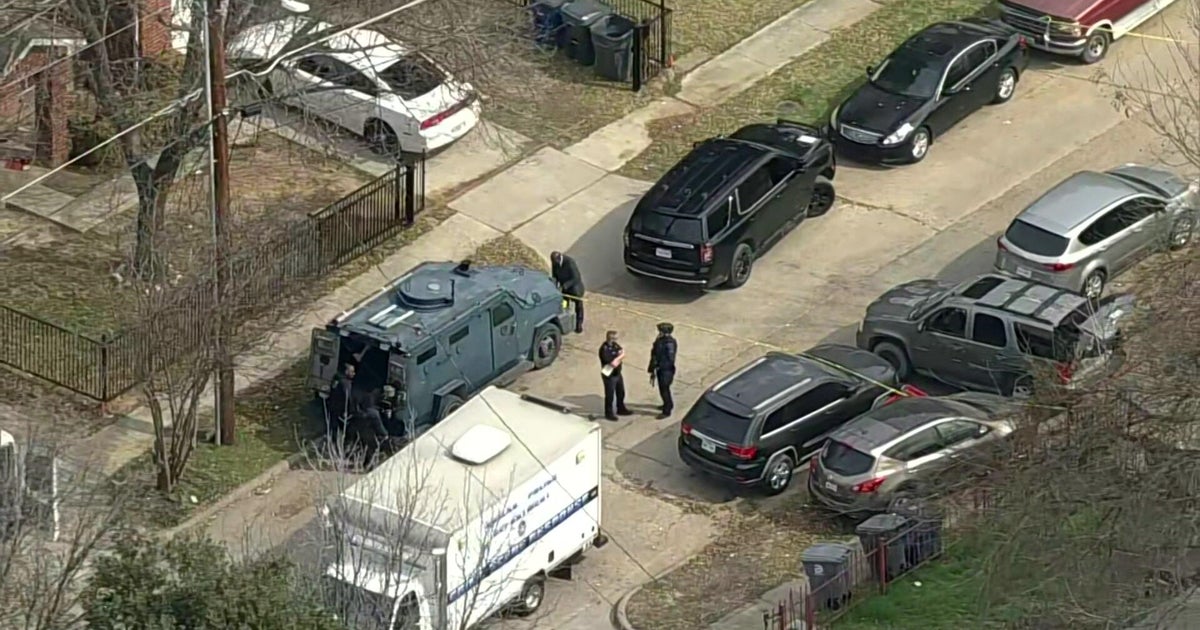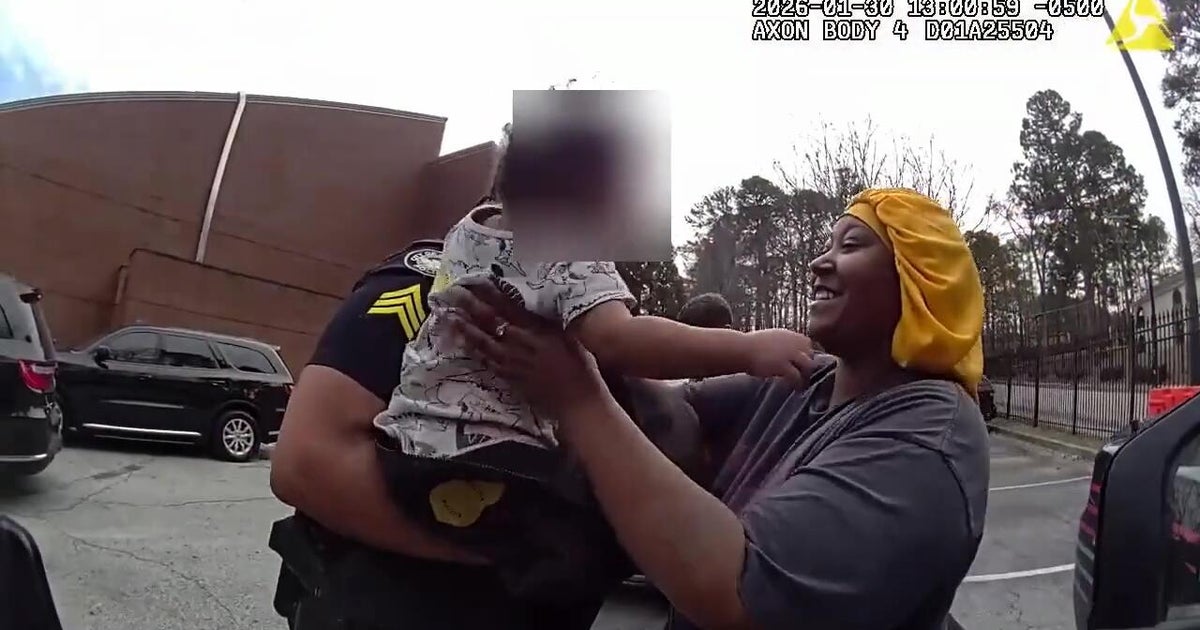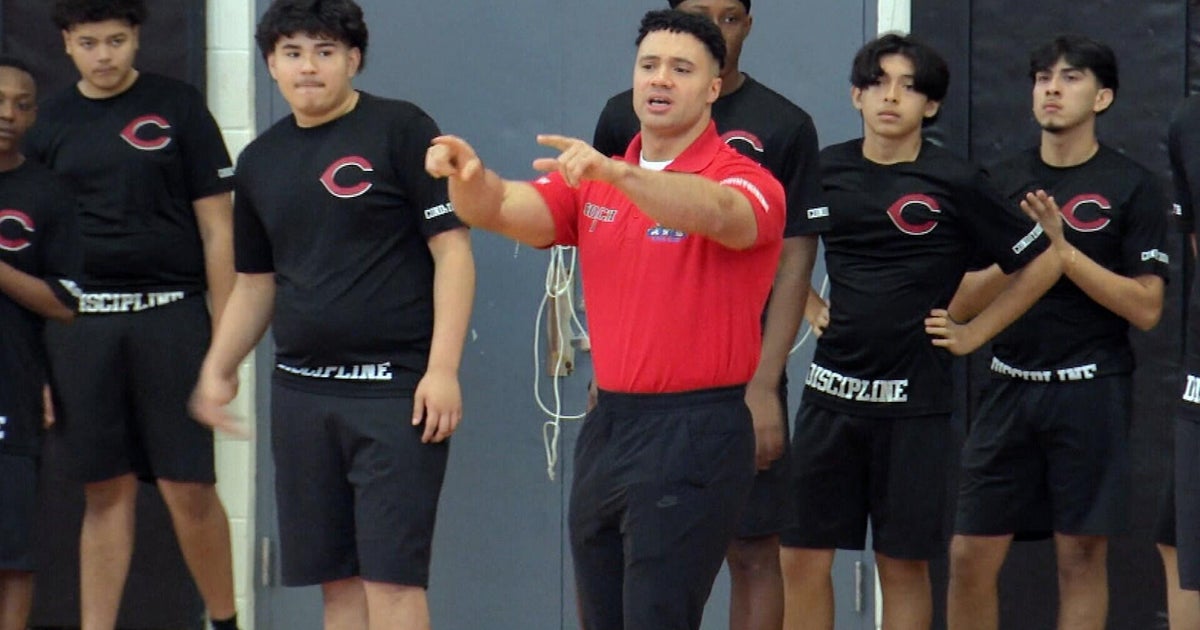Reunion Brings Victim, Officer Together 25 Years Later
By Alan Gionet
DENVER (CBS4)- For one woman, reliving the past can be traumatic and also part of her recovery. This week, Heather Callahan reunited with the police officer who helped save her life.
"I've wanted to do this and I thought about it for so long," said Callahan. "And then as I'm getting ready this morning and driving down here, I was trying to find ways to distract my mind so I wouldn't think about it, because it is overwhelming."
Twenty-five years ago, Callahan was brutally attacked and left near death. Denver Police Officer Frank Harrington climbed into the ambulance with her afterwards and was among the emergency responders who helped her.
It has taken a long time to get together with Harrington. In the years since the 1993 attack, Callahan, then Heather Smith, has thanked many of the people who helped save her life.
It was a daunting task. She had five stab wounds. Police never found the weapon, but theorized she was attacked in April 1993 with a roofing hammer. There was blunt force injury that broke her neck and deep gashes. She could hear air leaking out of her lung.
"They didn't think I was going to survive. Nobody did," Callahan remembers.
The attacker had answered a newspaper ad for a car for sale. Callahan agreed to meet with the man in front of her house near Washington Park, but declined to go for a test drive with him. She has long believed if she had gotten into the car with him, she would never have survived.
Cher Elder, 20, did get into a car with Thomas Edward Luther after a night in Central City in 1993. She did not survive.
Luther now sits in prison, sentenced for the attack on Callahan and the killing of Elder. At 61, he has no chance of living long enough to reach his first parole hearing scheduled for 2083. Investigators believed he may be linked to the killings of other women as well.
"From the very beginning, after my attack and recovering," Callahan explained, "I chose to focus on the people that came to my aid instead of the one man that attacked me."
She does not even mention his name in her recently published book about her long struggle to recovery, "A Drop of Rain."
Harrington was barely beyond rookie cop when he got the call on South Washington Street. The attacker was gone. Harrington climbed into the ambulance to see what information could get out of Callahan to aid their investigation. Even today, she realizes it was his job to try to obtain those details from her before she died.
The voice she recalls was under control with the questions.
"They were not frantic, but calm. I was trying to stay calm and he was calm."
But her blood was flowing out rapidly. The paramedic in the back of the ambulance as they sped to the hospital told her to be quiet and told Harrington to help.
"They needed his hand to put on my neck to stem the bleeding. Because one of my arteries in my neck was severed."
Harrington had already been through the wringer as an officer working Denver's streets. He was in a patrol car that was broadsided on the way to a shooting call as a rookie. It fractured his skull. He was back working on patrol when he responded to the call. This one was bad.
"They had thrown me a roll of gauze and they said, 'Use it.' And I said, 'How?' And they said, 'Use the whole thing.' I just remember applying the pressure and then going through that one and another one and then another one. It was amazing... the amount of blood loss and everything," said Harrington.
"I just remember vividly the moment," said Callahan.
"At that point I just remember letting go and saying 'Okay, it's time for others to help me now.'"
At the hospital, doctors and nurses gave Callahan 64 units of blood. Her long recovery included a discovery two years later that her neck had been broken in the attack. Luther remained at large. But, in 1995 he was going to trial for the killing of Elder. Callahan saw his photo in the paper -- there he was.
That year, almost two-and-a-half years to the day after the attack on Callahan, Harrington and Denver Police Officer Ryan McGinty were attacked tracking down a juvenile prowler.
Like Callahan, Harrington was stabbed five times. It, too, was a harrowing ambulance ride.
"I thought 'As long as I stay awake, I'm okay,'" said Harrington. "As long as my eyes are open and I'm conscious of what's going on. I'm okay."
Harrington recovered from yet another severe injury on the job and went back to work. The following year, he was promoted to detective. Callahan went through the trial. Harrington was ultimately not needed in the case against Luther and did not testify about the attack on Callahan. The two never saw each other again.
Until now.
Harrington picked up a bouquet of flowers and walked into the room in the police station where Callahan waited. She found herself crying again.
"I wasn't expecting that," Callahan said of the flowers.
It was a hug of affirmation and appreciation.
"You're so welcome," said Harrington. "Been a while hasn't it?"
Harrington doesn't hear a lot of thanks, but he knows there's a silent majority of people who are glad he does what he does.
"I've never forgotten your case ever," he said.
As they sat and remembered the two talked of being victims and working through the trauma.
"Being stabbed is up close and personal," said Harrington. "They're touching you. And mentally their face is right there and that was some of the struggle that I had."
He talked of gaining understanding of what victims go through every day.
"To be able to thank the people that helped me was sort of my little quest," explained Callahan.
She has thanked many. She set herself to the task of helping other crime victims in the years since the attack.
She got married and had three children with her supportive husband. She took up helping other victims, becoming very active with the Denver Center for Trauma and Resilience. Her strength has been an example.
She has shared her story with people training to go into health care. Once a student fainted listening to the tale of horror. The thanks she's shared have been a salve on mental wounds.
"I just feel like a big part of my recovery was trying to focus on the thousands of people that helped. And that helped me get away from the one evil person that came into my life for a very short period of time. I didn't want to give him any more credit."
Harrington has talked with new officers about being a victim, sharing his story and survival. The two of them discussed a similar reaction to their attacks: guilt. Callahan had to settle feelings of responsibility for disturbing lives around her.
Frank understood, "I thought, 'How did I let that happen?' And then I was worried that other people might second guess me like how could you do that, or like I just wasn't a very good police officer."
But he was. As a detective, he has empathy with victims.
Callahan has forgiven herself, "It took me a long time to say, 'Hey wait a minute. I did do what was right and if I didn't do that, I would have died…' Yes, it happened. But it could have been a lot worse."
This day was one of the better ones. For both of them. It had been a long time since that terrible ambulance ride. But this was real healing.
"After 25 years to have this and to meet someone like this and I just never saw it coming," said Harrington. "So thank you so much for reaching out."
"I've got a lot of heroes that night and you're my like my final hero to thank," said Callahan.
The tears were dry. The smile remained.
Callahan's book, "A Drop of Rain" is available at The Tattered Cover and online.
The Denver Center for Trauma and Resilience is always in need of support.
Alan Gionet is anchor of CBS4 This Morning and reports on a wide variety of issues and "Good Question" stories. He started at CBS4 in 1994. Follow Alan on Twitter @AlanGTV or on Facebook.
























